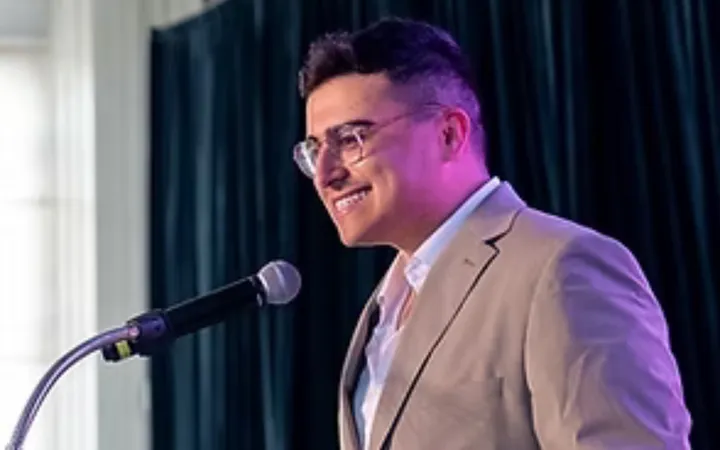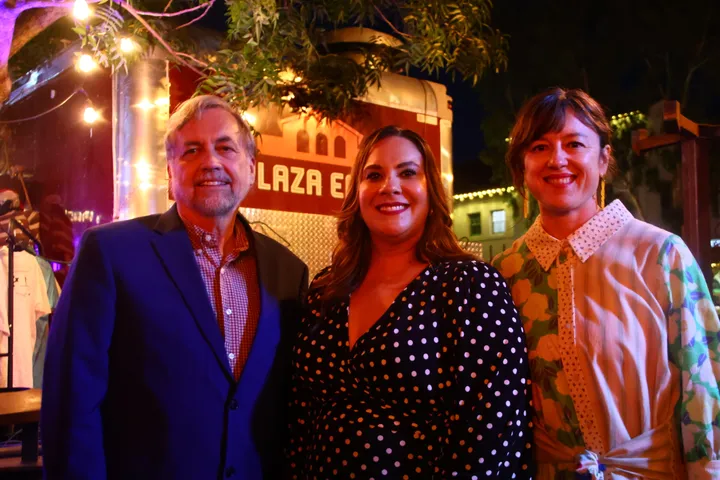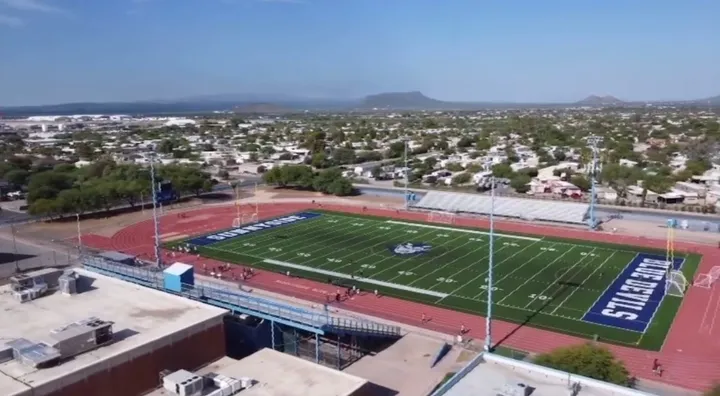Schubert aims to bring community-centered approach to Tucson City Council
Democratic candidate Miranda Schubert is running for Tucson’s Ward 6 City Council seat, emphasizing housing affordability, public transit access and environmental resilience as key parts of her platform.
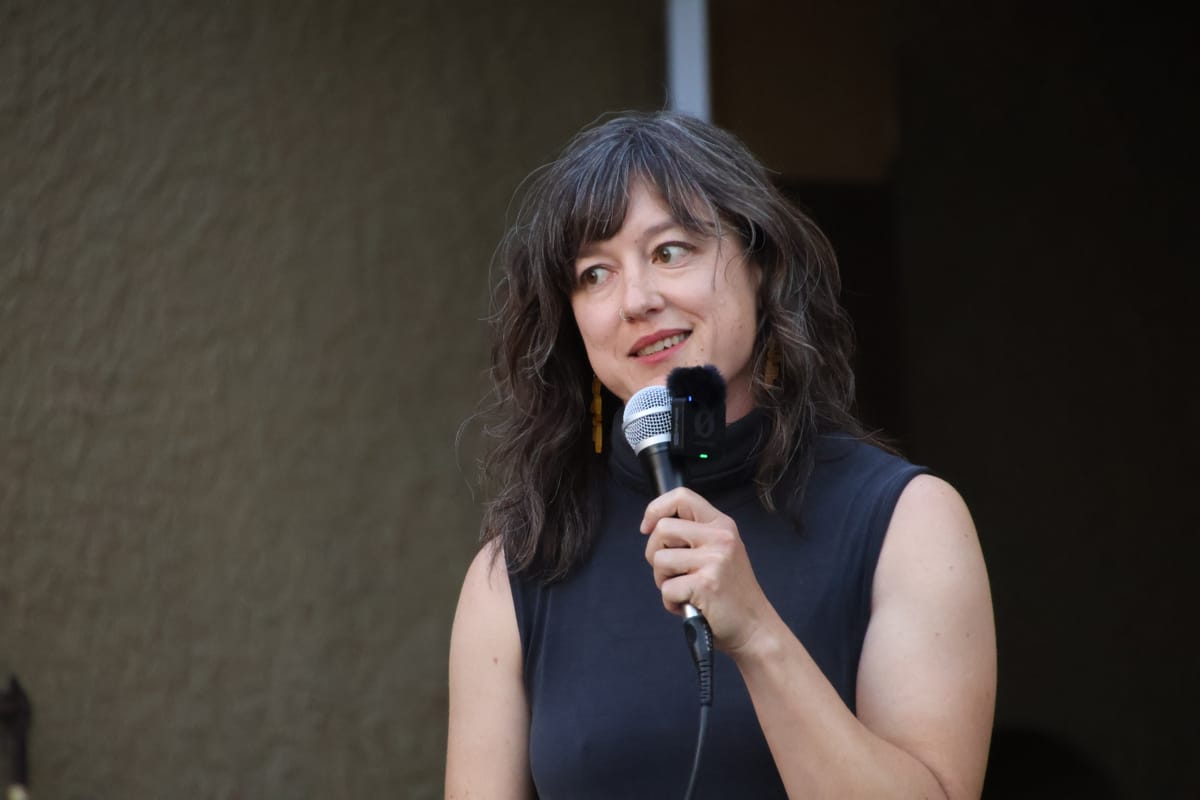
Democratic candidate Miranda Schubert is vying for Tucson’s Ward 6 City Council seat, challenging Republican Jay Tolkoff in the Nov. 4 election.
A longtime community organizer, Schubert has been active in labor, transportation and housing discussions at the city level. She’s running to represent neighborhoods including Armory Park, Sam Hughes and Poets Square.
Schubert said she envisions a Tucson where housing, transportation and environmental policies are centered on residents’ needs, not treated as an afterthought.
Her desire to join the council stemmed from her previous work as a founding member of the United Campus Workers Union at the University of Arizona. During the summer of 2020, Schubert saw firsthand how citywide protests sparked new conversations about budgets and community safety.
“I started watching city council meetings, and I was hooked,” Schubert told Tucson Spotlight.
She first ran for the Ward 6 seat in 2021, motivated to create a safer, more affordable and community-oriented city by prioritizing investment in people and public infrastructure. She challenged longtime Councilman Steve Kozachik in the primary election, earning about 28% of the vote.
Schubert has continued to focus her platform on evidence-based solutions for safer streets, affordable housing and accessible public transportation, all while knocking on thousands of doors.
“It's really important to have elected officials who reflect the lived experiences of the people that they're trying to serve,” Schubert said. “All of my (constituents) don't have to sit here and lobby me to care about increasing the housing supply or making our streets safer, (or) investing in transit. They get to free up their energy to think about innovative and creative solutions, to bring people together and to move us forward.”
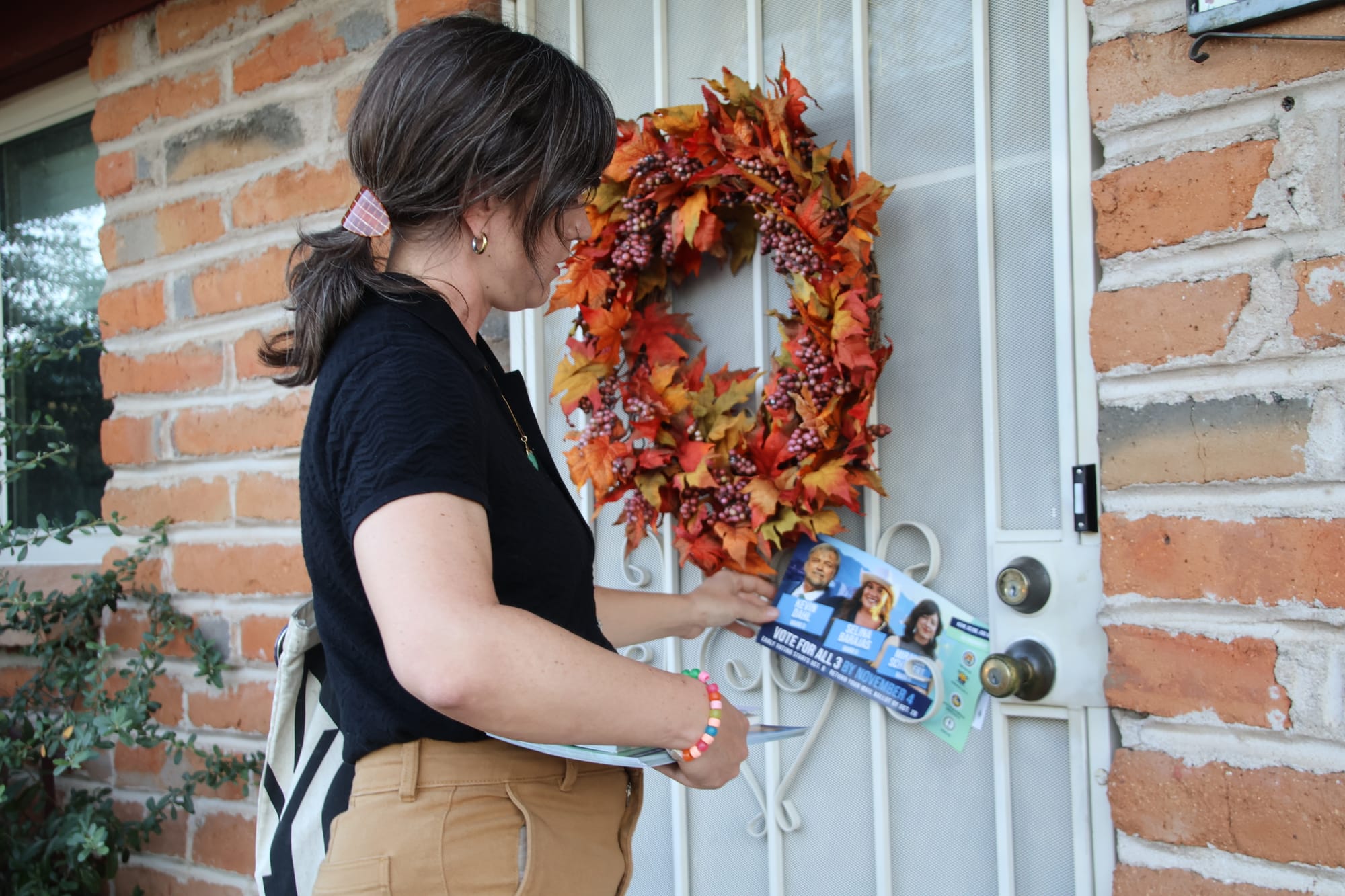
Tucson Spotlight spoke with candidates in each contested race about their views on the City Council’s role in addressing Tucson’s most pressing challenges, including housing, public transportation and water.
In addition to her full-time job as operations manager, on-air DJ, producer and youth broadcasting camp counselor at KXCI Community Radio, Schubert serves as a city commissioner on the Complete Streets Coordinating Council and is a founding member of the Transit for All Coalition.
“I see (transit) as a public good and a fundamental human right,” Schubert said.
She talked about her experiences riding Sun Tran buses, saying she’s encountered riders who helped her find a seat, parents chatting about their children and residents carrying groceries. She said public transportation provides both a sense of community and a feeling of safety.
“It's great to have people near each other, mixing and understanding that things that are different aren't necessarily dangerous, and that people are by and large good and more like you than they're not like you,” she said.
One in 10 Pima County residents live in a household without a vehicle, while the average household with a car spends about $12,000 a year on ownership costs, roughly 27% of Tucson’s median income, according to the Pima Association of Governments.
“You have to be able to get around. If you make people have to depend on cars, you're endorsing a system that makes it so that you have to literally pay to get around,” she said. “We can increase affordability for the basics that people need. (We have) got to keep transit fare free and got to invest more in making it more convenient and efficient.”
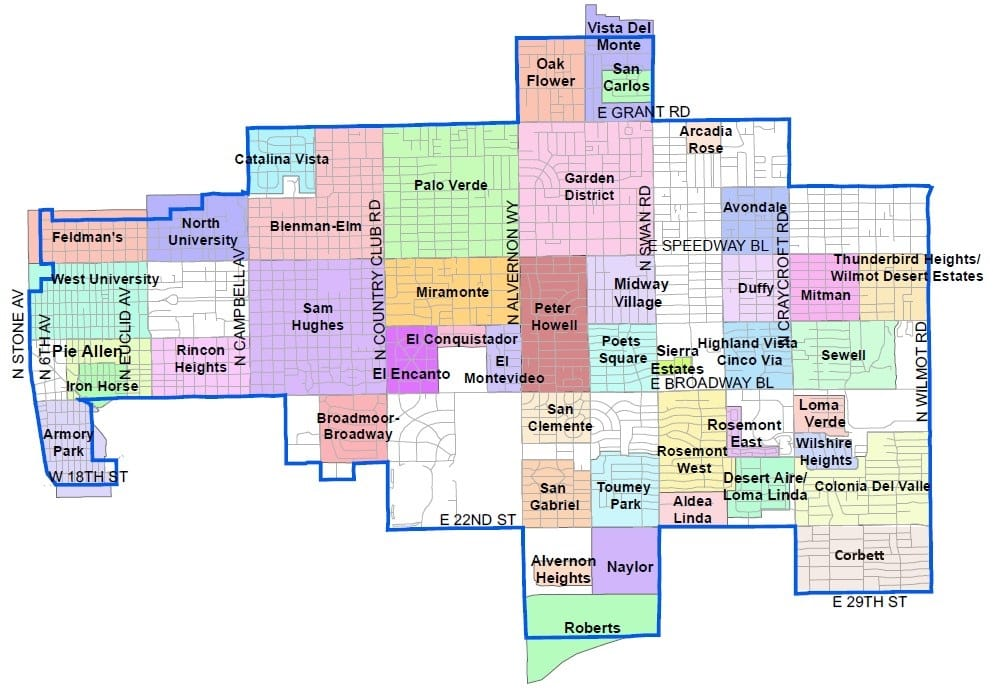
With 43% of greenhouse gas emissions coming from cars, Schubert said increased use of public transportation would also help create a more sustainable city, one with more shade, drinking water and cooling options during the hot summer months.
“A lot of things like rainwater harvesting, contouring, gray water are on a rebate model, and the people that need those things the most don't have the money (upfront) for that,” Schubert said. “I'm interested in what other resources we can leverage (and) what we can do to increase access to climate adaptation and upgrades to residences.”
She said protecting the environment, especially Tucson’s water future, is a concern across the political spectrum. The proposed Project Blue data center, she said, has opened a dialogue on protections and ordinances for urban development, while also presenting opportunities to create jobs tied to green infrastructure.
“The support that we heard for Project Blue had to do with jobs and economic opportunity, and I think it's really important to not ignore that,” Schubert said.
Zoning and development ordinances also affect housing availability, an issue Schubert said must evolve.
“Most of our homes here in Tucson are one type, which is single family,” she said. “Allowing for more innovation and creativity and thoughtfully filling in our existing urban footprint, having a variety of housing types … duplexes, triplexes, small apartment complexes. These are being enabled again, thanks to state legislation.”
She also pointed to the need for stronger collaboration between the city and Pima County.
“Looking for more funding for housing is also important to me, pooling resources and acting strategically together,” she said. “What can we do there to act more strategically and all be on the same page about (what’s) really going all in on housing first, as an approach and understanding that that needs to include wraparound services and more investment in the social safety net.”
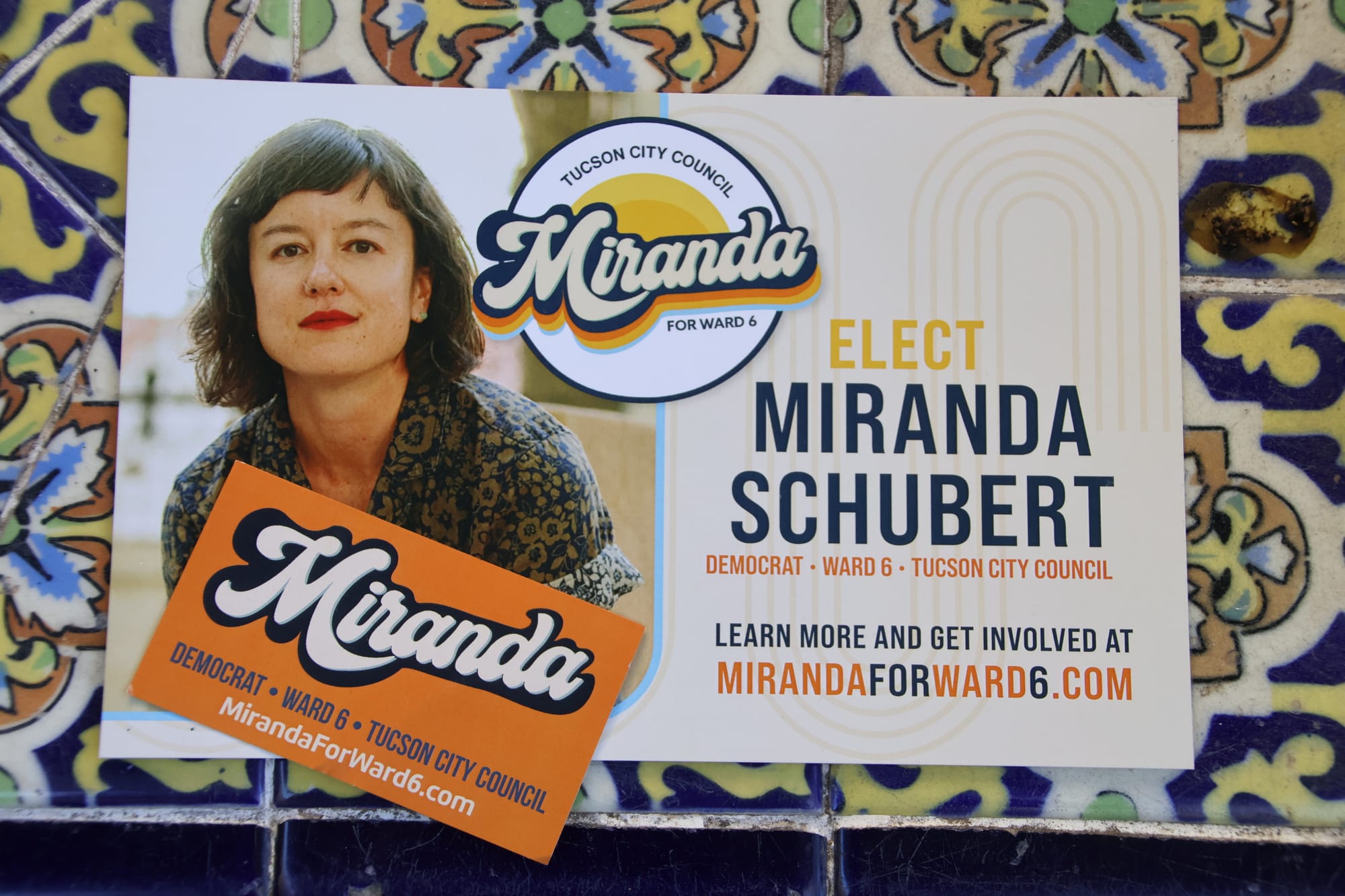
Schubert said she plans to meet residents where they are and identify ways the city can bridge accessibility gaps to ensure the ward feels fully represented.
“I'd like to canvas in off-election years … connect with different groups that are doing work out there and bringing people together, especially groups that include people who aren't traditionally active in local conversations or represented,” Schubert said.
She also wants to simplify access to city council information, such as how to provide public comments and attend meetings, by offering bilingual materials and ensuring all content is accessible through screen readers and other assistive technologies.
“I look at things through that lens of, ‘You should be centering the people you're serving in all of your decisions,’ (and that’s through) community engagement, acknowledging that (city council) is intimidating, and normalizing people asking questions,” she said.
With the election just a week away, Schubert said it’s important that elected officials take concrete steps to help people improve their lives and show them they represent their best interests.
“I'm a coalition builder who thinks that we will get the best policy and the best decisions from sincerely and deeply engaging with everybody and all the viewpoints and all the perspectives,” she said.
Topacio “Topaz” Servellon is a reporter with Tucson Spotlight. Contact them at topacioserve@gmail.com.
Tucson Spotlight is a community-based newsroom that provides paid opportunities for students and rising journalists in Southern Arizona. Please consider supporting our work with a tax-deductible donation.


